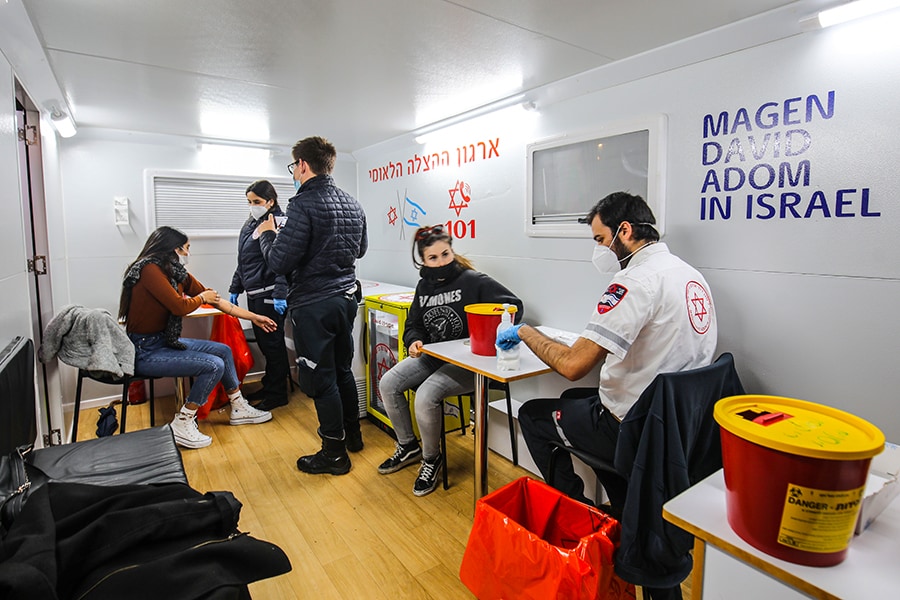
As Israel reopens, 'Whoever does not get vaccinated will be left behind'
Israel is one of the first countries grappling in real time with a host of legal, moral and ethical questions as it tries to balance the steps toward resuming public life with sensitive issues such as public safety, discrimination, free choice and privacy
 Israeli youths receive coronavirus (Covid-19) vaccine within the scope of the campaign, free non-alcoholic drinks of various types were distributed to those who came to be vaccinated at the center in Tel Aviv, Israel on February 18, 2021. (Photo by Mostafa Alkharouf/Anadolu Agency via Getty Images)
Israeli youths receive coronavirus (Covid-19) vaccine within the scope of the campaign, free non-alcoholic drinks of various types were distributed to those who came to be vaccinated at the center in Tel Aviv, Israel on February 18, 2021. (Photo by Mostafa Alkharouf/Anadolu Agency via Getty Images)
BAT YAM, Israel — Israel has raced ahead with the fastest COVID vaccination campaign in the world, inoculating nearly half its population with at least one dose. Now the rapid rollout is turning the country into a live laboratory for setting the rules in a vaccinated society — raising thorny questions about rights, obligations and the greater good.
Prime Minister Benjamin Netanyahu’s Cabinet voted this week to open shopping malls and museums to the public, subject to social distancing rules and mandatory masking. For the first time in many months, gyms, cultural and sports events, hotels and swimming pools will also reopen, but only for some.
Under a new “Green Badge” system that functions as both a carrot and a stick, the government is making leisure activities accessible only to people who are fully vaccinated or recovered starting from Sunday. Two weeks later, restaurants, event halls and conferences will be allowed to operate under those rules. Customers and attendees will have to carry a certificate of vaccination with a QR code.
Israel is one of the first countries grappling in real time with a host of legal, moral and ethical questions as it tries to balance the steps toward resuming public life with sensitive issues such as public safety, discrimination, free choice and privacy.
“Getting vaccinated is a moral duty. It is part of our mutual responsibility,” said the health minister, Yuli Edelstein. He also has a new mantra: “Whoever does not get vaccinated will be left behind.”
©2019 New York Times News Service




